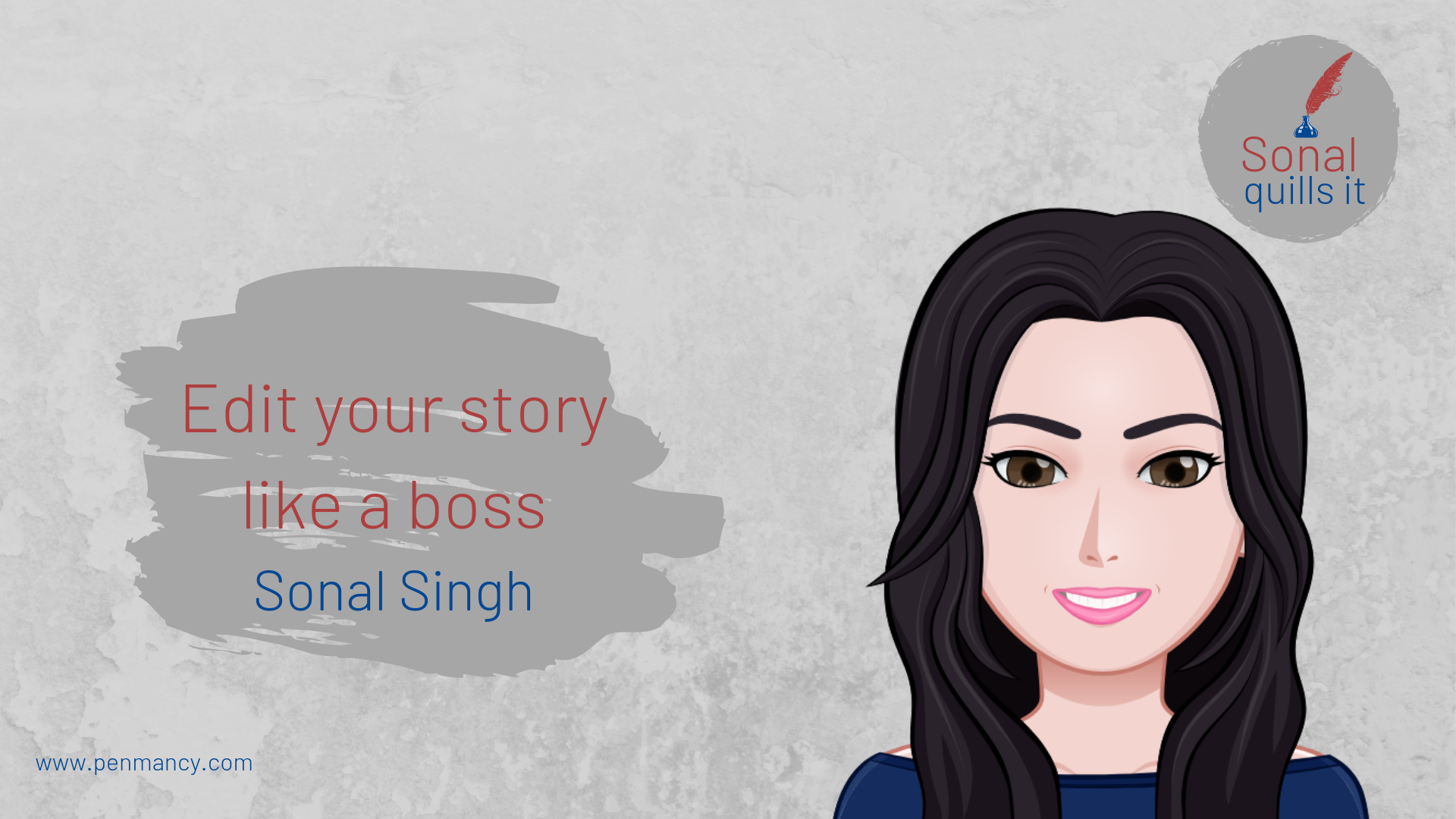
One of the most difficult things for an amateur writer to do is edit a story that they have penned. I mean we put not just our heart & soul but also a lot of sweat and sleepless nights into writing a story. So, it pains to edit out substantial portions of it to fit into a given word limit. But, edit we must. Not just to fit our stories into given word limits but also to make them more enjoyable for a reader. Nobody wants to read a story that drags or carries on and on. Long-winded sentences, endless dialogues and narratives that over explain things; seldom hold interest for a reader. If we want to hold a reader’s attention then our narrative has to flow fast and smooth, our characters have to be well etched out, dialogues need to be crisp and the execution of the plot has to be taut. So, how do we do that? How do we edit a long story to make it short, short enough to hold the readers interest and yet carry depth & meaning? Personally speaking, I find that writing is a breeze compared to editing. When I first started writing short stories I would often overshoot the word limit (and quite substantially at times). In fact, it is still my nemesis to quite an extent. However, over time I have come up with a technique to edit that works for me. Every writer has their own distinctive style of writing. So, what works for me, may not work for you but the basic rules of editing remain the same. The purpose of editing remains the same. In the words of noted French writer Collette - “Put down everything that comes into your head and then youre a writer. But an author is one who can judge his own stuffs worth, without pity, and destroy most of it". This is a piece of advice that I have tried to follow in my writing. So, what are my tricks to edit a story? What do I do when I overshoot? Well, here is what... The first trick that I and a lot of amateurs/ seasoned writer use are to create 2 drafts of the story. Once I have that in place, I keep the first draft (draft A) as my master draft and I edit the second draft (draft B). I edit out any redundant sentences (sentences conveying the same meaning or using the same words). I edit out any unnecessary dialogue or any unnecessary words. If the emotion in a sentence does not feel right to me then I even rewrite the sentence or paragraph. My aim is to make my language flow in a manner that makes the reader feel a part of the story. Hence, I shorten by sentences to make the language more crisp & taut (using vocabulary and sentence reconstruction). This usually works for me. Another thing that I do while writing is to give a very detailed character sketch of the protagonist. I let my words flow, my descriptions come in detail. However, once it comes to editing, I take a really close look at the story and plot. I check the tone of the story and then I edit my character sketch to fit into it. For Example, if the protagonist in my story is a woman who is devious and cunning then describing her beauty in detail is superfluous. It’s her deviousness that I need to portray. So, if I have taken up two or three paragraphs describing her beauty then I edit that to a lesser number of words. A couple of sentences to show her beauty are enough (if necessary in the story) and that leaves me room to describe her devious character in detail. The third thing I do (and this I resort to when editing has completely stumped me) is to break up my story into parts. I colour code different parts of the story for my editing reference. For example, I highlight the introduction of the story in blue, the character sketch paragraphs in green, and any important incidents in orange and so on. I then treat each colour coded part as a separate piece of writing, editing that for all the things that I mentioned in point no 1 and 2 above. Once I have done that, I remove the colours and read my story in entirety paying particular attention to the transition of paragraphs. I add words or edit them (if needed) to smoothen the flow of the story from one paragraph to another. In the end, what I am left with is a crisp narrative that makes sense to me. In short, the most important thing that I try to keep in mind is to detach myself from my story and view it from a reader’s perspective. Doing so helps me to see my mistakes more clearly and editing becomes a painless experience. However, what works for me, may or may not necessarily work for you. Everybody has their own technique. So, what are the things that you take into account when you edit your work? What is your technique? Share your editing tips in the comments for others to benefit as much. ________ For more of such content, follow us: ________
